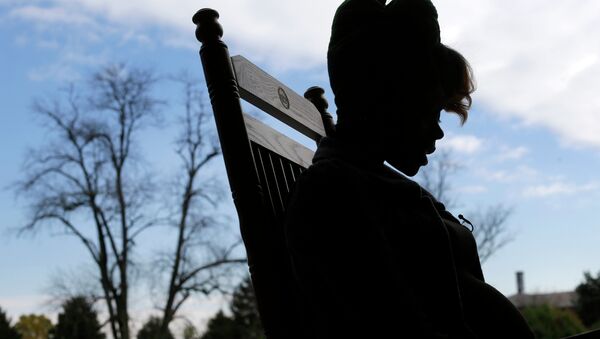However, it's hoped the largest ever study looking at the psychological and physical wellbeing of trafficked men, women and children in South East Asia will improve support for survivors everywhere.
The new study, conducted by the London School of Hygiene and Tropical Medicine and the International Organisation for Migration, has been published in The Lancet Global Health.
It's estimated that 18 million people in the world have been forced into a life of sex work, domestic servitude, criminality and various forms of forced labour. This report reveals the severity of abuse and complex mental health issues that modern slaves endure.
Researchers carried out face-to-face interviews with 1,015 survivors in Cambodia, Thailand and Vietnam. The study found that the majority of men were forced into the fishing industry and trafficked to work in Indonesia and China.
Young girls were trafficked to Thailand and exploited for sex work. Young boys were sent to Thailand to fish or beg on the streets. And the majority of women from Vietnam were trafficked to China to become brides.
All the interviewees had lived through difficult situations for long periods of time, enduring violence, working overtime and living in crowded rooms lacking in basic hygiene. The sample study found that fishermen experienced the worst conditions.
Largest study by IOM, @LSHTMpress on #Trafficking reveals severe abuse experiencd by survivors http://t.co/JGxMp02zEF pic.twitter.com/ZHRRkI0BM9
— IOM (@IOM_news) February 19, 2015
Almost half of all the survivors had been physically or sexually abused — often both. The violence they suffered included knife attacks, dog bites, burning and choking.
But it is not just the physical scars that survivors must carry. The study revealed deep psychological and emotional scarring too.
Of the survivors, 61.2 per cent reported symptoms of depression, 42.8 per cent suffered with anxiety and 38.9 had symptoms of post-traumatic stress disorder. And 5.2 per cent had attempted suicide in the past month.
According to Ligia Kiss, lead author and lecturer of social epidemiology at the London School of Hygiene and Tropical Medicine, the study "calls for urgent prevention and understanding in what we can do to prevent these cases."
"Our findings highlight that survivors of trafficking urgently need access to health care to address a range of needs, and that mental health care should be an essential component of this", Kiss said.
#Trafficked individuals face severe physical and #mentalhealth problems http://t.co/4pAhUm16PF #humantrafficking
— Carola Finch (@carola_finch) February 19, 2015
According to Dr Cathy Zimmmerman, study author from the London School of Tropical Medicine, "there is no single profile of a trafficked person — we spoke to men, women and children of all different ages, from different countries, and with a wide range of experiences of exploitation."
"Exploitation of human beings is age-old. Although it is disheartening to see that human trafficking exists in such proportions in the 21st century. It is encouraging that various forms of these violations are increasingly recognised for what they are: modern-day slavery."
Eighteen million victims of modern slavery is a modest figure. The Global Slavery Index estimates that 36 million men, women and children are trapped in some form of modern slavery around the world in a trade worth £95 billion a year.
Almost two thirds of the 35.8 million people in modern slavery are in the Asia Pacific region http://t.co/09MxDvYZT9
— Global Slavery Index (@SlaveryIndex) February 4, 2015
The Modern Slavery Bill in Britain — the first of its kind — is being debated in the House of Lords. Parliament is expected to pass the bill before the general election in May 2015. According to the Home Office, the bill is ‘an historic opportunity to get legislation on the statute book that will, for the very first time, address slavery and trafficking in the 21st century'.


